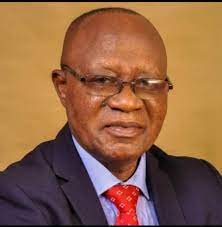The Centre Director, Centre for Logistics and Transport Education, Mr. Francis Ehiguese has said that landward activities have the capacity to cause heightened disruptions in many port-related functions and their effects can be massive.
Ehiguese who stated this while delivering a paper at a workshop organized in Lagos recently by the Chartered Institute of Logistics and Transport (CILT), Nigeria, with the theme, “Port Environment and Infrastructure Development, A Panacea for Landward Decongestion”, observed that ports are not island to themselves adding that they need to interface with other forms of transportation (road, rail, inlands) and in so doing are able to provide connecting services, all in a bid to meet the needs of ship-owners, shippers and those with connected interests.
He maintained that a lack of or a weak interface between ports and landward linkages would always result in disruptions of unimaginable magnitudes namely; ships delays, cargo longer stay in ships or at berthing/storage areas, operational disconnect at both within and outside the ports among others.
The Centre Director stated that core to port operational efficiency is a structured and well thought out options for moving out goods from ports to hinterlands insisting that intermodal connection with ports increases accessibility, speedier inflow and outflow of freights, allowing for improved utilization of vertical and horizontal land areas and reduction of port congestion.
He further adds that “Ports efficiencies are dependent on the relationships those managing them would have developed overtime with other modes of transport. A gap in their positive interactions as usual would cause a drag in port operations.
While positing that the impacts of a functioning rail in the port logistics chain are enormous as goods are moved in large volumes, safer, cheaper and speedier deliveries on long hauls, he maintained that even though rail network in Nigeria is not wide spread and equitably distributed, efforts are on to improve the situation.
According to him, “For now Abuja-Kaduna, Lokoja-Warri and Lagos-Ibadan corridors are functioning. Information before us shows that Lagos-Ibadan rail is now connected to Apapa port. Government should be encouraged to work towards national rail network connectivity. This can be done by a reform policy that gives access to PPP model that cannot be easily revoked without cogent reasons and approval by the National Assembly.”
He further observed that Inland Waterways Transport (IWT) is an important component of the intermodal transportation network which Nigeria can tap into arguing that IWT has a significant part to play in the states of Niger, Kogi, Anambra, Delta, Bayelsa, Rivers, Akwa-Ibom, Benue, Adamawa, Cross River and Lagos.
“The waterways in these states connect several minor ports/jettys and the major port of Baro, Lokoja, Onitsha, Warri and Apapa as well as the host of industries located along the Niger. What we observe is that Inland waterways have remained the most neglected segment of Nigerian transportation system even though it could be comparatively cheap and efficient means of transport more than others in the nearest future.
“With the recent use of badges to freight cargo from the ports, its importance may gain momentum up very soon amongst users”, he submitted.
Some of the identified factors hindering the growth of waterways in Nigerian, according to Ehiguese are: percentage share of cargo carried is very small compared to coastal trade; there are serious navigable constraints owing to sedimentation and river courses and only very few vessel operators ply the routes.
Others include; there is serious lack of storage facility around the waterways; security and social vices need to be addressed in the waterways; institutional presence lacking along the waterways; there is private sectors hesitancy or apathy to invest as well as cargo transit not standardized.
On the challenges, he pointed out that the major concern in port-landward interface port management efficiencies is coming from intermodal connection that are fraught with intractable problems.
These, he said, are traceable to Road Traffic Congestion (RTC), lack of or inadequate Rail Transport Service (RTS) and weak Inland Waterways Transportation (IWT), especially in Nigeria.
He also identified some ports’ internal issues that directly or indirectly affect or disrupt the logistics chain of freighting services outside the ports to include none or partial digitization of services, cargo clearance process infractions, inabilities of regulatory authorities to regulate/manage traffic inflow and out flows within the port area and environment.
Photo: Centre Director, Centre for Logistics and Transport Education, Mr. Francis Ehiguese.
Send your news, press releases/articles to augustinenwadinamuo@yahoo.com. Also, follow us on Twitter @ptreporters and on Facebook on facebook.com/primetimereporters or call the editor on 07030661526, 08053908817.

